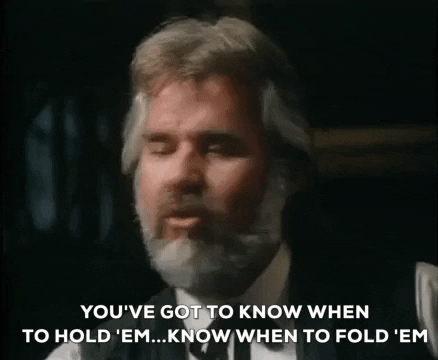I love Kenny Rogers’ song, The Gambler, and not in an ironic way. Kenny said the trick with being a gambler was knowing “when to fold ’em.” It’s a hard lesson to learn. When to put your cards down on the table. But I’m sure it would interest Kenny to read a 41-page report by UK-based Campaign Bootcamp.
The organization has decided to fold ’em. Campaign Bootcamp was all the rage when I first got into nonprofit work in England. People talked about going and learning everything they needed to run powerful campaigns. Something struck me as a bit cult-like about it. Lots of intensity. Harms aside, I rather like cult energy. It’s distinct from the mediocrity of the suburb I grew up in. So, I didn’t judge. When it comes to bringing justice about, I’m all for different approaches to getting the job done.
I did wonder why they didn’t seem to consider media and press work such an integral part of campaigning. Instead, there was much tech-industry-inspired zeal about the power of digital organizing. Still, it seemed like the people who went got a lot out of it. I figured I was a little bit too old and cynical for it, even at the time.
Now, though, as I say, the organization has decided to close. It cites “a lack of strategy”, “inconsistent and unfair HR practices,” and “a culture of racism” as the reasons why. After lengthy reviews into such things, they’ve decided there isn’t a way forward. There are “trust gaps.” And they’ve taken a hard lesson from Kenny Rogers.
Many organizations are grappling with similar issues. In June reporter Ryan Grim wrote a much-circulated piece for The Intercept. It was about how “meltdowns have brought progressive advocacy groups to a standstill.” Some have hired consultants to help. Some have changed leadership. Most have decided to hold their cards for now. In some cases, they’ve decided to ante up. But, yes, some have closed. Leaders are moving on.
I don’t know what exactly happened at Campaign Bootcamp. I do know racial bias and systemic racism run through all organizations. It’s sad, in some ways, that having acknowledged some of the challenges, this org can’t see a way forward. Particularly since they were intent on doing such valuable work. One could even view the closure as a throwing-the-toys-out-of-the-stroller sign of white fragility.
That said, I’m impressed with their “8 lessons for social justice orgs”, which open the report. I’ve changed the s’s to z’s for the sake of American readers:
1. Interrogate why and how you want to grow or scale.
2. Embed a culture of learning at the heart of your organization.
3. If everyone says, ” you’re amazing” ask “why?”
4. Prioritize nurturing and maintaining good relationships at all levels of your organization.
5. Diverse teams that include marginalized staff may need more structure than you might assume.
6. Prioritize the backend of your organization from the beginning.
7. Make governance an organization-wide thing by being leaderful and well-led.
8. Don’t be afraid of the end.
They’re good lessons and I hope more social justice organizations reflect on them. It’s important to be intentional about the culture you’re creating. No matter how hard you think you’re fighting to solve for issues outside. For me, it also comes down to the “no brilliant jerks” theory. I don’t care how impressive your campaign skills are. You need to be able to manage a project to a conclusion without burning too many relationships. Otherwise, your approach isn’t sustainable, and our causes are too important to implode.
The longer I sit at the table in social justice work, the more I realize how important it is to stay there. There are times when you want to fold your cards. But there are times when it’s best to let the play continue and play the hands you’re dealt. Nobody’s perfect, but I admire those willing to admit their mistakes and continue. I also admire those willing to fold their cards and walk away. I’m just not so sure I can deeply admire those who follow through on the impulse to run.


